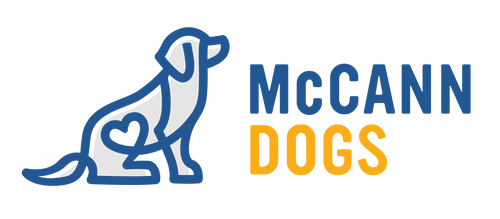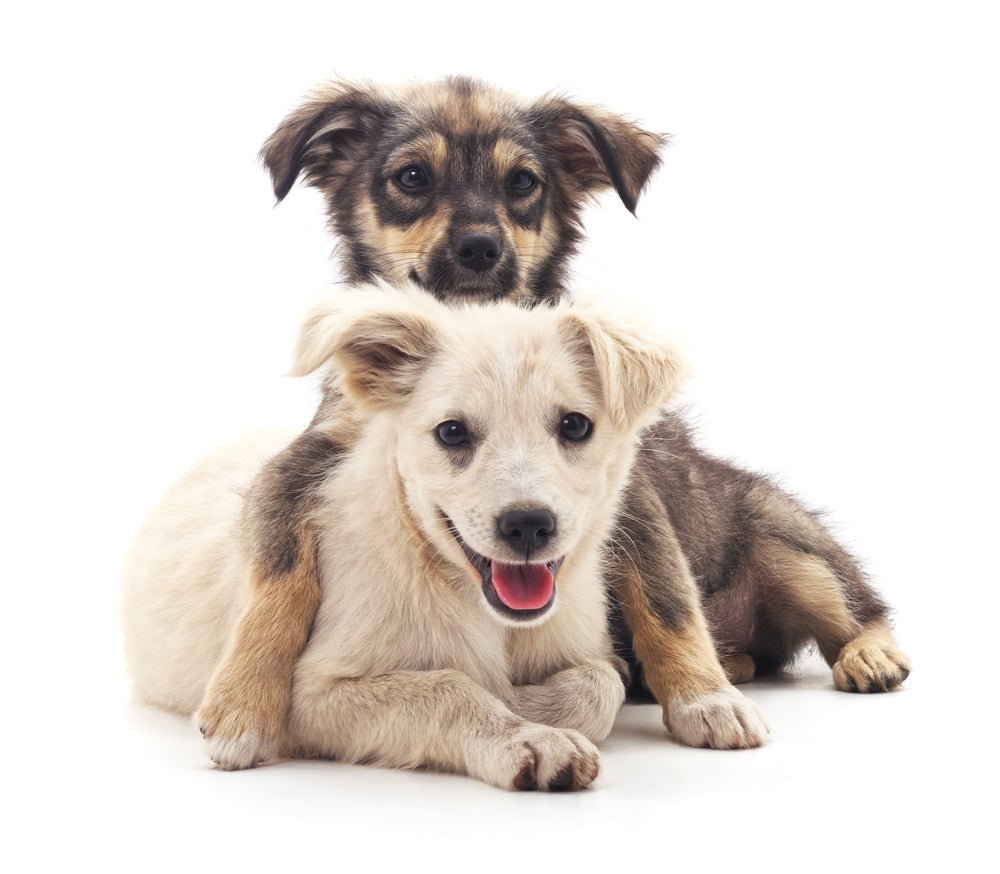There are few things more enjoyable in a dog lover's life than watching their puppy having fun while playing with another puppy! But, as much fun as it can be, it can be detrimental to the puppy in more ways than one if certain things aren’t taken into consideration. Not only are there safety concerns but there is also the possibility that your puppy will learn bad habits.
Be selective when it comes to playmates!
Choose your puppy's playmates carefully. It’s important to know that their playmates are properly cared for, regularly vetted and vaccinated in order to reduce the likelihood of contracting an illness, disease or parasites. Avoid allowing your puppy to play with another puppy if you’re at all concerned about the other puppy’s health. It’s just not worth the risk.
Look for puppies that have a play style that will match your puppy’s. Some puppies are more comfortable with non-contact forms of play and find great joy in simply running and chasing or being chased. Others might enjoy more physical forms of play like wrestling and dive-bombing. When puppies have mismatched play styles, it can be a problem. If a soft-natured puppy is constantly being dive-bombed or chased down by a more rambunctious pup, it can cause concern or worry for that puppy and can eventually lead to a loss of confidence around other dogs. It can also lead to the more boisterous puppy becoming a bully as they learn to push their weight around - literally and figuratively. Mismatched play can also lead to injury (puppies have soft growth plates), frustration, and even fights.
Take size into consideration. Accidents happen and can happen even more easily when there is a size difference. While it can certainly be cute to watch a Chihuahua puppy play with a Labrador puppy, it wouldn’t take much for the Chihuahua to be injured. One body slam, flop, or misplaced paw on the Labrador’s part and there’s a good chance the Chihuahua will be hurt.
Be aware of what behaviours you’re reinforcing!
Unless we give our puppies permission to “go play”, we expect them to remain under control with us. Puppies will often get excited just by the sight of another puppy - and the thought of greeting and playing. If you release your puppy to “go play” when they are pulling away from you, barking or carrying on, you’re reinforcing that heightened state of excitement and your puppy will become more and more excitable and uncontrollable every time they see another dog. It can lead to a great deal of frustration and loss of emotional control on your puppy’s part as time goes on. It’s important to insist on calm, relaxed behaviour BEFORE you release your puppy to “go play”. You can work on having your puppy sit calmly and quietly on a loose leash while you reward generously with treats or you can practice holding your puppy’s collar while rewarding relaxation and calm acceptance. Only when your puppy is calm, quiet and relaxed should you release your puppy to “go play”.
Tips for a successful play session:
- Interrupt the play often to practice taking control of your puppy. Puppies can have so much fun playing with one another that they sometimes forget all about their human. While your puppy is playing, take opportunities to go to them, show them some tasty treats and call them away from the other puppy. Reward them generously for giving their attention back to you and then when they’re calm and under control, release them to “go play” again. By interrupting often, calling them to you for rewards and then releasing them to go have more fun, you’re teaching your puppy that listening to you is a “win-win”. Many people make the mistake of calling the puppy to them and ending the play altogether. The puppy quickly learns that being called out of play signals the end of all the fun and they become very reluctant to listen. Also, by interrupting the play often, you’re allowing your puppy to catch their breath and you’re preventing the play from becoming too wild and over-the-top.
- Have your puppy drag a house line (a leash with the handle cut off) while playing. This will allow you the opportunity to quickly regain control if you need to. If the play gets out of hand or your puppy tries to avoid you, you can take a hold of the line to regain control of your puppy. You never want to be in a situation where you’re forced to chase or grab at your puppy to get control.
- Keep the play session to a minimum. Puppies tire easily but sometimes don’t know when to quit. When puppies start to tire, they’re more susceptible to becoming overstimulated and frustrated and even physically injured. Your goal is to end the play session when they’re still having fun but before exhaustion starts to set in.
- Choose the location for the play session wisely. Safety is key. A securely fenced yard or a room inside the house that is carpeted (for traction) is ideal. Avoid allowing your puppy to play somewhere there is the possibility that they might run off or slip, fall and get hurt on a slippery floor.
- Step in when necessary! Even well-matched puppies can have a disagreement. While many people are of the mindset that dogs should be left to work out their differences on their own, it’s not something that we agree with. We would rather step in as leaders and diffuse the situation quickly - before anyone gets hurt.
YOUR relationship with your puppy should come first!
The most important thing should be YOUR relationship with your puppy - not your puppy’s relationship with other dogs. While you do want your puppy to become a confident adult dog when in the presence of other dogs, you don’t want your puppy to learn that other dogs are more important (and fun!) than you. Take the time to build your relationship with your puppy so you can establish yourself as a leader worth following. Your puppy should value YOU over everything else - including other dogs.
Happy Training!
Instructor Robbie

Hi! I’m Robbie Stevenson and I started training at McCanns as a student in 1995 when I discovered my passion for dog (and human!) training. I then joined the McCann team as a full time employee in 1997 and taught classes for 14 years. After leaving McCanns when I had to move away, I rejoined the team in 2020. I’m now the Online Program Development Manager for McCann Professional Dog Trainers. I love writing about anything related to dog training as well as online learning after my own personal experiences as an online student studying horsemanship. I currently have 2 Border Collies (Spright and So) who keep me very active and busy with lots of fun activities when I’m not working

